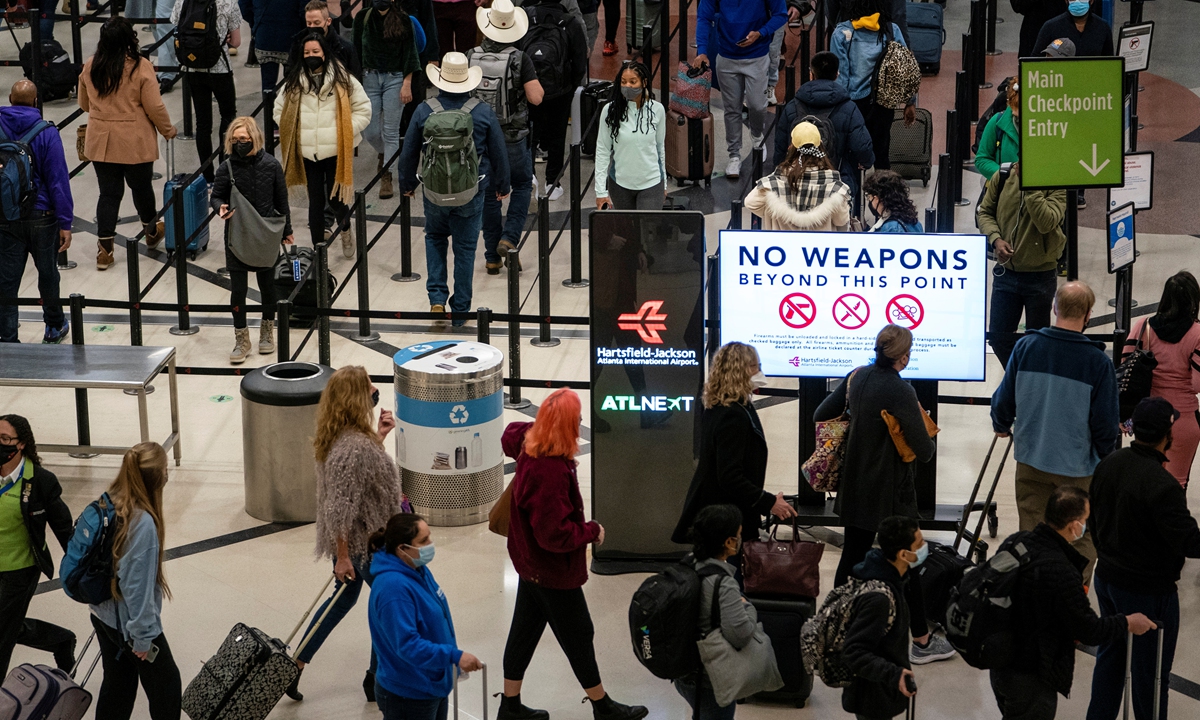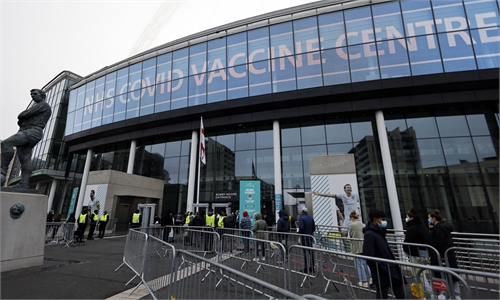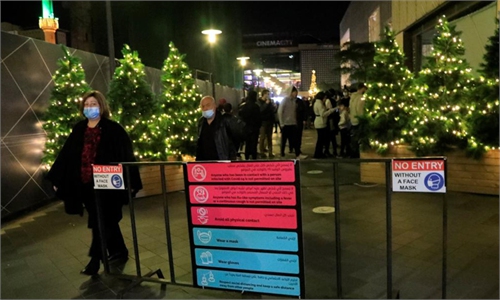11 percent global surge in cases could overwhelm healthcare systems
WHO warns of ‘very high’ Omicron risk

American travelers line up outside the TSA security checkpoint at Hartsfield-Jackson Atlanta International Airport in Atlanta, Georgia, on December 22, 2021, ahead of the Christmas. All 50 states have discovered the Omicron variant while millions are expected to travel during the holidays. Photo: IC
Omicron still poses "very high" risk and could overwhelm healthcare systems, the WHO warned Wednesday, as the highly transmissible coronavirus variant fueled record outbreaks in many countries.
Case numbers have shot up 11 percent globally last week, forcing governments from Germany and France to find a difficult balance between anti-virus restrictions and the need to keep economies and societies open.
The Netherlands and Switzerland said Omicron had become the dominant strain in their countries, and while some studies suggested it causes milder COVID-19, the World Health Organization urged caution.
"The overall risk related to the new variant of concern, Omicron, remains very high," the UN health agency said in its COVID-19 weekly epidemiological update.
"Consistent evidence shows that the Omicron variant has a growth advantage over the Delta variant with a doubling time of two to three days."
The WHO said early data from Britain, South Africa and Denmark, which currently has the world's highest rate of infection per person, suggested there was a reduced risk of hospitalization for Omicron compared with Delta.
But it added that further data was needed to understand Omicron's severity.
And despite those studies, Omicron's rapid growth "will still result in large numbers of hospitalizations, particularly amongst unvaccinated groups, and cause widespread disruption to health systems and other critical services," warned WHO Europe's COVID-19 Incident Manager Catherine Smallwood.
Europe was again one of the hot spots for the pandemic, which is known to have claimed more than 5.4 million lives around the world.
France, Britain, Greece and Portugal all reported record daily case numbers on Tuesday.
France reported almost 180,000 infections over 24 hours.
To hold back the tide, many nations on the continent have brought back curbs with heavy economic and social consequences.
Contact restrictions were in place in Germany for the second year in a row heading into the New Year, as Europe's biggest economy shut nightclubs and forced sports competitions behind closed doors.
It also limited private gatherings to 10 vaccinated people, or two households where any unvaccinated people are present.
Finland on Tuesday said it would bar unvaccinated foreign travelers from entering. Only residents, essential workers or diplomats will be exempt.
The Nordic country, like Sweden, had begun requiring negative tests for incoming non-resident travelers from Tuesday, a day after Denmark applied the same measure.
The spikes around the world have caused severe disruptions to travel over the holidays, with thousands of flights canceled worldwide.
AFP



